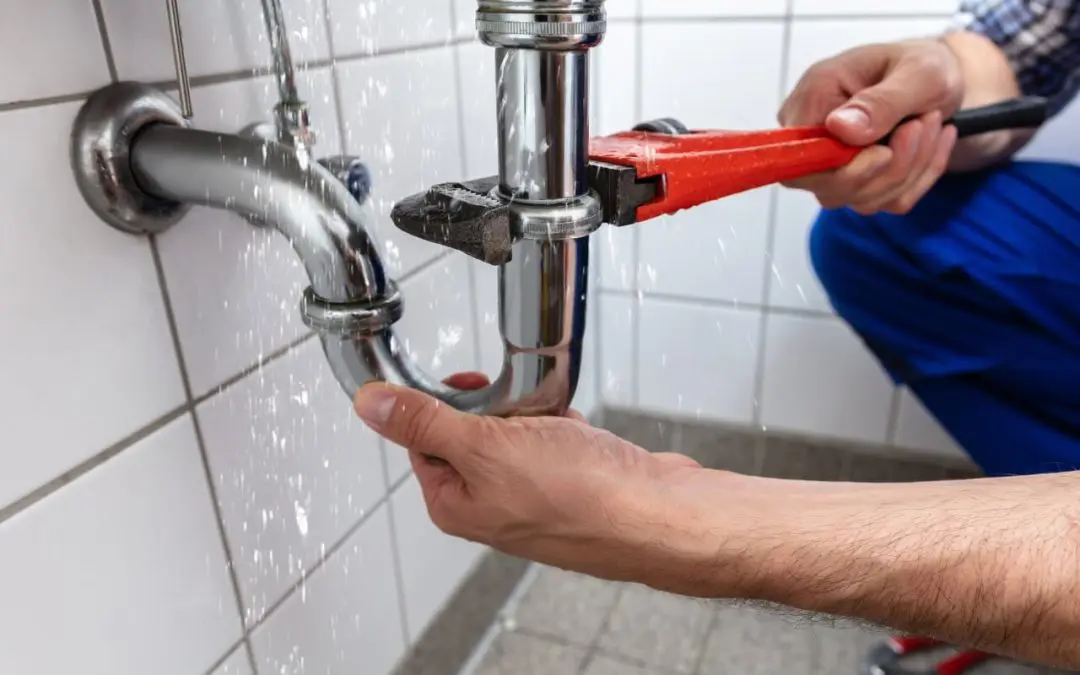Maintaining your home’s plumbing system prevents costly repairs and ensures a continuous clean water supply. Here are some essential plumbing maintenance tips that every homeowner should know.
Regularly Inspect for Leaks During Plumbing Maintenance
One of the simplest yet most effective ways to maintain your plumbing is to check for leaks regularly. Inspect faucets, showerheads, and under sinks for any signs of dripping or pooling water. Even small leaks can lead to significant water waste and damage over time. Early detection and repair can save you from more extensive problems down the line.
Monitor Water Pressure
Maintaining proper water pressure is vital for the longevity of your plumbing system. High water pressure can stress pipes, leading to leaks and bursts. Invest in a water pressure gauge to monitor your home’s water pressure. Ideally, it should be between 40 and 60 psi (pounds per square inch). If it’s consistently higher, consider installing a pressure regulator to protect your pipes and fixtures.
Keep Drains Clear
Clogged drains can cause severe issues, from slow drainage to complete blockages. Avoid pouring grease, coffee grounds, or other debris down your sinks. To keep drains clear, regularly clean them with a mixture of baking soda and vinegar, followed by hot water. A drain snake or plunger can be an effective tool for more stubborn clogs.
Maintain Your Water Heater During Plumbing Maintenance
Your water heater is a critical component of your plumbing system. Regular maintenance can extend its lifespan and ensure it operates efficiently. Flush the tank annually to remove sediment buildup, which can hinder performance. Check the temperature setting and keep it at 120 degrees Fahrenheit to prevent scalding and reduce energy consumption. Additionally, inspect the anode rod every few years and replace it if it’s significantly corroded.
Insulate Pipes
Insulating your pipes is particularly important in colder climates to prevent them from freezing and bursting during the winter months. Use foam pipe insulation to cover exposed pipes in unheated areas such as basements, attics, and garages. This simple step can save you from the costly repairs associated with burst pipes.
Know the Location of Your Main Shut-Off Valve
In the event of a major plumbing emergency, knowing the location of your main shut-off valve can save you from extensive water damage. Familiarize yourself with its location and ensure it’s easily accessible. Make sure everyone in your household knows how to turn it off in case of an emergency.
Check for Toilet Leaks
Toilet leaks can be silent but costly. Periodically check your toilets for leaks by adding a few drops of food coloring to the tank. If the color appears in the bowl without flushing, you have a leak that needs attention. Often, replacing the flapper or other internal components can resolve the issue.
Maintain Outdoor Plumbing
Don’t forget about your outdoor plumbing. Inspect garden hoses, faucets, and sprinkler systems regularly for leaks or damage. Disconnect and drain garden hoses before winter to prevent them from freezing and cracking. If you have an irrigation system, ensure it’s properly winterized to avoid damage.
Schedule Professional Inspections
While there are many plumbing maintenance tasks you can handle yourself, scheduling regular professional inspections is crucial. A licensed plumber can identify potential issues that may not be obvious to the untrained eye. Regular inspections can catch problems early, saving you money and headaches in the long run.
Proper plumbing maintenance is essential for every homeowner. Taking these proactive steps will help you avoid costly repairs and ensure the longevity of your home’s plumbing system.
Plumbing Maintenance FAQs
How can I tell if my water pressure is too high?
To check your water pressure, you can use a water pressure gauge, which can be purchased at most hardware stores. Attach it to an outdoor faucet and turn the water on. Ideal water pressure should be between 40 and 60 psi. If your pressure exceeds this range, consider installing a pressure regulator.
How can I prevent frozen pipes during winter?
To prevent frozen pipes, insulate exposed pipes in unheated areas, keep your home heated to at least 55 degrees Fahrenheit, and let faucets drip slightly during extreme cold. Additionally, open cabinet doors under sinks to allow warm air to circulate around the pipes.
What should I do if I have a clogged drain that won’t clear?
If a drain remains clogged despite using a plunger or drain snake, avoid using harsh chemical drain cleaners, as they can damage pipes. Instead, try a natural solution of baking soda and vinegar followed by hot water. If the clog persists, it’s best to contact a professional plumber to avoid damaging your pipes.
What should I do if I discover a toilet leak?
If you suspect a toilet leak, start by checking the flapper, as it is often the culprit. Ensure it creates a proper seal. If the flapper is worn or damaged, replace it. If the leak persists, it may be necessary to inspect and possibly replace other internal components of the toilet.
TMK Inspections provides home inspection services to customers in Southeast Pennsylvania. Contact us to schedule an appointment.

